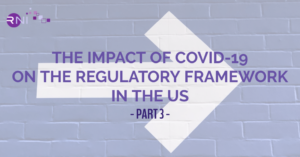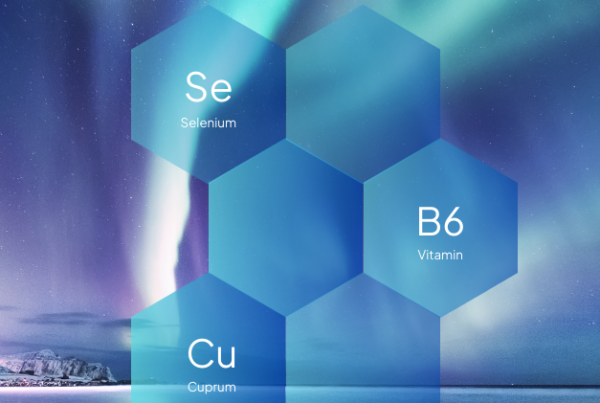Over the course of the following weeks and months, we will be sharing news that are directly linked to the Covid-19 pandemic and impacting the regulatory affairs markets such as dietary supplements, medical devices, cosmetics, and more.
POTENTIAL SUPPLEMENT SUPPLY BOTTLENECKS IDENTIFIED IN RESPONSE TO FEDERAL GOVERNMENT REQUEST
THE RNI VIEWPOINT:
For companies experiencing supply chain issues, we suggest reaching out to industry leaders. The Council for Responsible Nutrition continues to make resources available on their COVID-19 Resources page, including a March 11th podcast transcript on COVID-19’s effects on the supplement supply chain. The National Association of Manufacturers (NAM) also maintains a COVID-19 Resource page and provides contact information for their COVID-19 Response Team on their website.
>> GET FULL REPORT HERE >>
MORE AND MORE WARNINGS ABOUT CLAIMS IN THE TIME OF COVID19
THE RNI VIEWPOINT:
With warning letters from FDA on the rise for COVID-19 related claims, RNI recommends that extra caution be taken for any claims made directly on the product label and marketing materials as well as any marketing copy on websites/social media and any claims stated by influencers or others not directly linked to the company. Stick to generic immune support claims and only make these if they are appropriately substantiated for the product. Stay away from overly creative messaging that uses any association with COVID-19, coronavirus, virus, viral immune response, pandemic, or other associated terms/phrases.
>> GET FULL REPORT HERE >>
FULL REPORT – Potential supplement supply bottlenecks identified in response to federal government request
The COVID-19 pandemic impacts all industries and sectors. Even though part of the dietary supplements industry may be currently getting some highs due to an increase in demand, supply chain in the same industry might be challenging in the coming months. This is what the US Department of Agriculture let industry stakeholders know in the past weeks.
A Worldwide impact
 At the moment we write this article, half of the global population is still under a safer-at-home order. As the pandemic peak has still not be reached in many parts of the world, global production is at its lowest since the last few decades. The primary source of the dietary supplement industry being China, the overall industry relies on production delays due to the fact that China was the first country to be hit by COVID-19. Even if production restarted in certain branches of the economy in the Asian country, it is still not at 100% capacity, and has added up months of orders not fulfilled.
At the moment we write this article, half of the global population is still under a safer-at-home order. As the pandemic peak has still not be reached in many parts of the world, global production is at its lowest since the last few decades. The primary source of the dietary supplement industry being China, the overall industry relies on production delays due to the fact that China was the first country to be hit by COVID-19. Even if production restarted in certain branches of the economy in the Asian country, it is still not at 100% capacity, and has added up months of orders not fulfilled.
On another note, transport issues add to the production problem. Restrictions in Europe, Asia and the Americas slow all processes down, making it difficult for human being to travel and work, hence amplifying the difficulties for goods to be shipped.
The Immune System, a high demand
As we have seen in previous weeks, immune system products have been #1 in demand in the dietary supplement industry. On top of the regular increase during the winter months in the Northern hemisphere, demand for ingredients such as Vitamin C, Vitamin D, Zinc or Omega-3s have been surging since February. And the Council for Responsible Nutrition (CRN) confirms that the industry is not shaped to face such high demand in such short moment. Some actors in the industry also faced difficulties in getting packaging materials to order bottles, making this situation quite inextricable.
FULL REPORT – More and more warnings about claims in the time of COVID19
 In one of our previous articles about the impact of COVID-19 (click here), we mentioned the importance of complying with FDA guidelines about claims, especially now with claims regarding the immune system. As of May 7th, 30% of the warning letters issued by the FDA over the past 2 months were targeting COVID-19 and “Unapproved and Misbranded Products Related to Coronavirus Disease 2019”.
In one of our previous articles about the impact of COVID-19 (click here), we mentioned the importance of complying with FDA guidelines about claims, especially now with claims regarding the immune system. As of May 7th, 30% of the warning letters issued by the FDA over the past 2 months were targeting COVID-19 and “Unapproved and Misbranded Products Related to Coronavirus Disease 2019”.
As coronavirus-related messages increase exponentially, FDA and FTC seem to expand their compliance expectations on unsubstantiated disease claims. The two agencies are using the hashtag system, especially on social media, to catch COVID19-related marketing messages, target non-compliant communication, and tackle down the issue. Using this methodology allows the FDA and FTC to identify not just claims made directly by the company but also messages that can be indirectly linked to products by influencers or others not directly linked to the company. In some cases, influencers take the role of the communication specialist on behalf of the company and try to convey specific messages, but from a compliance standpoint, direct messaging made by the company and indirect messaging from influencers or other sources must adhere to the same standards for claims language and substantiation. “I think people thought using hashtags of various sorts was no big deal. But if you put a #COVID-19 or #Wuhan or another hashtag like that on there, it is an implied disease claim” says Erica Stump, a California-based attorney, in a recent Nutraingredients-usa.com article.
Stick to your compliant claims
We would suggest marketers of natural products to “stick to the plan” and keep your substantiated claims only when communicating about your product. A claim like “supports a healthy immune response” can be compliant if substantiated correctly. With all the media noise around COVID-19 and the importance of the immune system, it is important to communicate appropriate and substantiated claims only.




